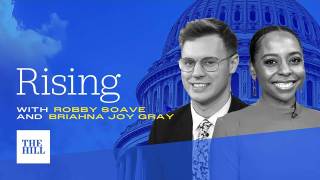Patrons packing heat: Businesses should be required to tell customers whether guns are allowed
A federal appellate panel just upheld a lower court order enjoining part of a gun-safety statute that the New York legislature passed in the aftermath of a Supreme Court decision radically expanding the Second Amendment right to bear arms. The provision at issue created a presumption against carrying firearms on private land unless the landowner expressly indicated by signage or otherwise that guns were welcome.
The injunction effectively reverses the default presumption — so that people can carry concealed weapons into private businesses if the business owner remains silent. Because of the opinion, the person shopping next to you at Zabar’s may be legally packing heat.
The opinion is deeply flawed. There is no constitutional right to a presumption that a private owner welcomes firearms until the owner announces otherwise. An individual’s right to bear arms ends at someone else’s property line. A business owner can choose to exclude people who bear arms — just as they can limit their invitations to people without pets or people who are wearing shoes.
The law of trespass has long hinged on legal inferences about what is and isn’t an implied invitation. A girl scout may ring your doorbell to sell cookies, because your doorbell and the paved walkway to your front door implicitly invite that behavior. But the same scout might very well be trespassing if she walked around to the back of your house.
The law of implied invitations has evolved over time. For example, over the course of the 19th century, most states reversed the default rule as to whether domesticated cattle were permitted to graze on another owner’s land, thereafter placing the burden on the visiting rancher to obtain that owner’s express consent. More recently, some cities have flipped the default and now prohibit peddlers from solicitation on private property without the owner’s consent.
The evolution of implied invitations to enter private property has also applied to gun use. Traditionally, armed strangers were permitted to enter onto unimproved rural land to hunt — unless the owner posted “No Trespassing” signs along the land’s perimeter. But now half the states have flipped the presumption so that it is trespassing to hunt on private property without the owner’s consent.
The law of implied invitations evolves because social norms change over time. Customers generally understand that, by default, they are not allowed to bring their (non-service) animals into a hotel room or a restaurant. They must look for “pet-friendly” or “pets allowed” establishments. But customs can change, and it is reasonable for the law to reflect that change.
A national representative survey of Americans (co-authored by one of us) found that a substantial majority of respondents disapproved of a law providing that customers could by default carry a concealed firearm — with only 38 percent of New Yorkers preferring a concealed carry default. What’s worse, most respondents either didn’t know the law of their state or mistakenly believed that concealed carry in businesses open to the public was unlawful.
In light of this evidence, New York and other states should respond to the court’s injunction by enacting a new requirement that businesses holding themselves open to the public affirmatively state whether or not they want patrons entering their property to carry weapons.
An “affirmative choice” rule of this kind will make clear that it is the property owner who is making the decision, not the government — and so there is no government restriction on the right to bear arms, or even a finger on the scale for or against concealed carry. A neutral law of this kind cannot violate the Second Amendment.
Some may nonetheless wonder whether an affirmative choice rule unconstitutionally “compels speech” under the First Amendment. After all, the law does require business to publicly declare their gun policy to the state. Such a requirement, however, falls squarely within the bounds of constitutional commercial speech regulation.

No specific state-endorsed ideology is imposed; businesses merely clarify the scope of their invitation to customers. Given the survey evidence of consumer ignorance and misinformation, the disclosure requirement is “reasonably related to the state’s interest in preventing deception of consumers.” It is no more problematic than the current rules requiring restaurants to post their health ratings.
There are good reasons to believe that a substantial majority of New York businesses would exclude firearms from their stores. At the moment, many businesses may be reluctant to post “no firearm” signs. When most businesses are silent, being the first on your block to post your gun policy could seem overly political and off-putting to some customers. But there may be safety in numbers. And when required to choose, most businesses will invite only unarmed customers.
Ian Ayres, a professor at Yale Law School, and Fredrick Vars, a law professor at the University of Alabama, are the authors of “ Weapon of Choice” and amici curiae in Antonyuk v. Chiumento.
regular post copyright









